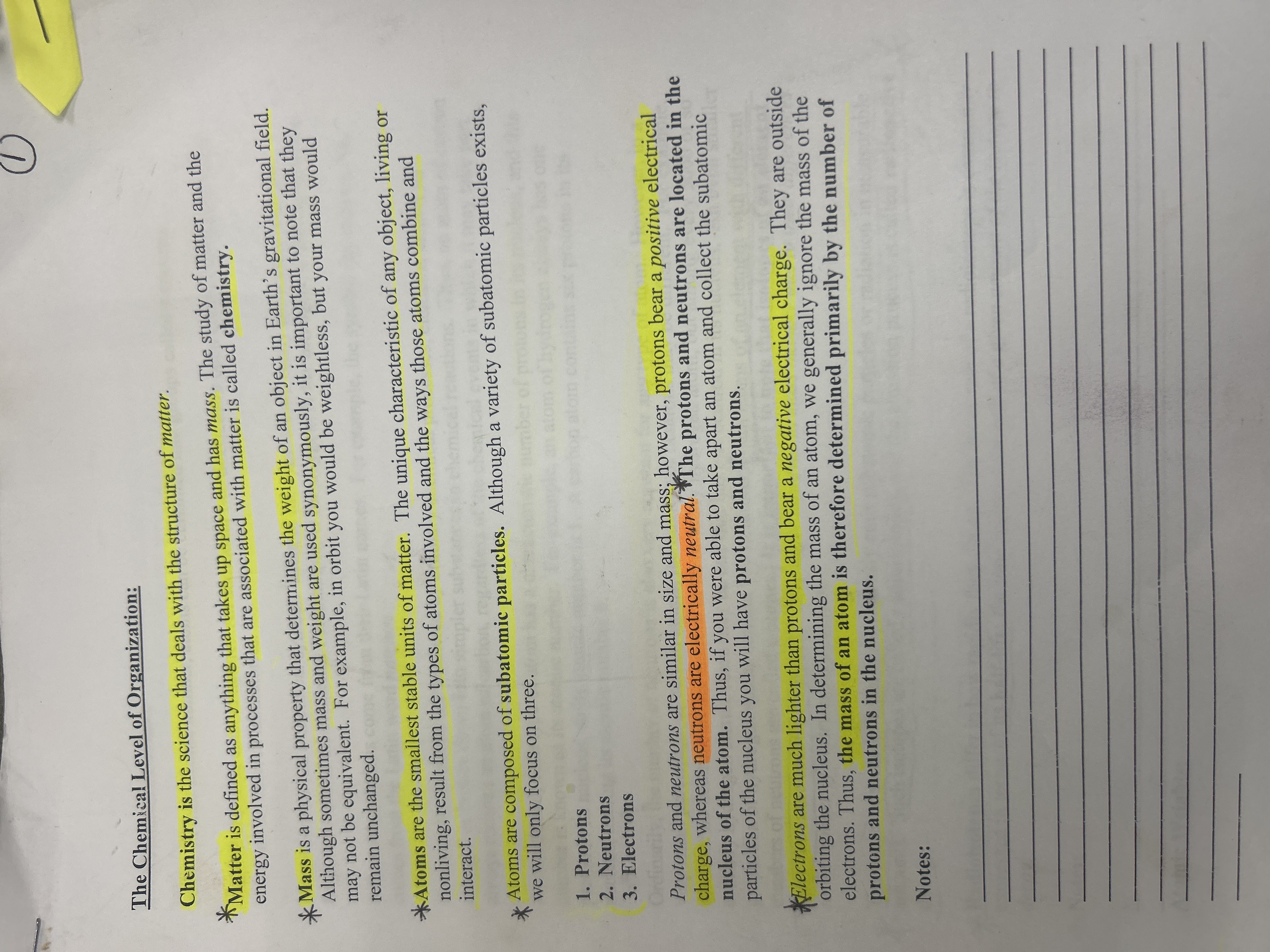What are protons and neutrons, and how do they relate to the structure of atoms and matter?

Understand the Problem
The question appears to relate to the chemical structure and organization of matter, specifically discussing protons, neutrons, and the nature of atoms.
Answer
Protons and neutrons are in the nucleus. Protons have a positive charge; neutrons are neutral. They determine the atom's mass.
Protons and neutrons are subatomic particles found in the nucleus of an atom. Protons have a positive charge, while neutrons are electrically neutral. Both are similar in size and mass, and together they determine the atom's mass.
Answer for screen readers
Protons and neutrons are subatomic particles found in the nucleus of an atom. Protons have a positive charge, while neutrons are electrically neutral. Both are similar in size and mass, and together they determine the atom's mass.
More Information
Protons, bearing a positive charge, attract negatively charged electrons, creating atomic stability. Neutrons, being neutral, contribute to the stability of the nucleus by offsetting the repulsive forces between protons.
Tips
Common mistakes include confusing the charges of protons and electrons or neglecting the role of neutrons in the stability of the nucleus.
Sources
- The web page with info on - Example Source - acs.org
- The Properties of Protons, Neutrons, and Electrons - chem.libretexts.org
AI-generated content may contain errors. Please verify critical information